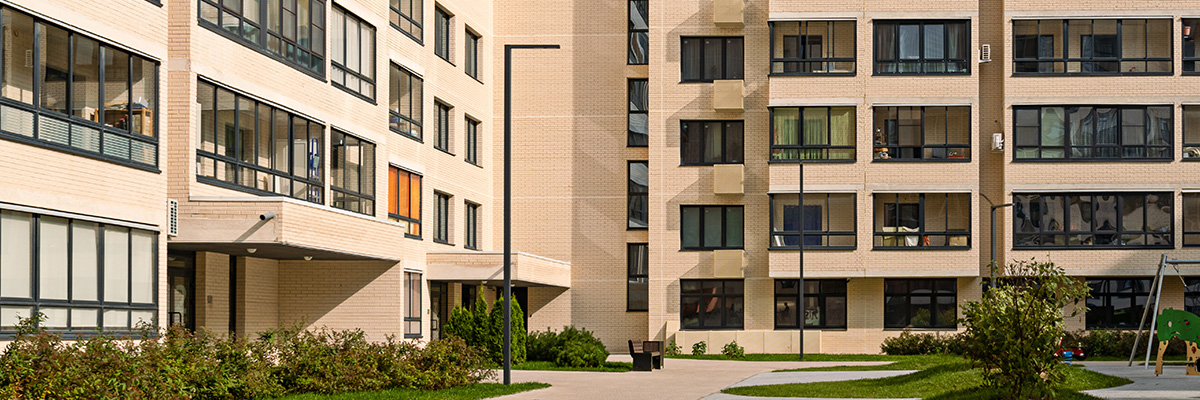For leaseholders and freeholders, navigating lease extensions can be complex and challenging, especially when legal rights and financial implications under the Leasehold Reform, Housing and Urban Development Act 1993 (LRHUDA) have to be balanced.
At TV Edwards, our lease extension solicitors in London provide expert guidance to simplify the process, securing your property’s future and keeping costs at a minimum.
Whether you’re a leaseholder seeking to extend your lease or a freeholder responding to a tenant’s request, our tailored solutions deliver clarity and results.
Understanding Lease Extensions
Lease extensions allow leaseholders to receive a new lease, typically extending the term by 90 years plus the remainder of the current lease at a peppercorn rent (a nominal amount).
Under LRHUDA, leaseholders pay a premium to the landlord (freeholder) for the loss of ground rent and the extended term, calculated based on the property’s value and remaining lease duration. This process primarily applies to residential flats, defined as separate premises within a building used as dwellings.
For leaseholders, lease extensions offer financial benefits, such as lower rent, increased property value, and better mortgage eligibility. For freeholders, it’s crucial to understand the process, which might involve negotiating development clauses or receiving a premium lump sum, in order to keep rights protected.
Our lease extension solicitors in London assist both parties, facilitating compliance with statutory requirements and getting the very best outcomes available.
Why Lease Extensions Matter
Short leases can reduce a property’s value and marketability, particularly when the remaining term falls below 80 years. This triggers a higher premium known as “marriage value.” Disputes may arise over premium valuations or notice compliance, requiring expert resolution.
Our landlord and tenant dispute solicitors provide strategies to address these issues, as highlighted in understanding rent repayment orders in England & Wales.
Who Qualifies for a Lease Extension?
To qualify for a statutory lease extension under LRHUDA, leaseholders must meet specific criteria:
- Hold a long lease (over 21 years)
- Be the legal owner of the flat for at least two years
- Face potential complications if the lease has less than 80 years remaining (e.g., property disputes)
- Use the property as a residential dwelling
Freeholders must respond to qualifying leaseholders’ requests, serving a counter-notice to avoid legal action. Our lease extension solicitors assess eligibility and guide clients through the process, maintaining compliance.
Contact us to check your eligibility.
Related Dispute Resolution Services
Our Approach to Lease Extensions
TV Edwards’ lease extension solicitors in London, recognised by the Association of Leasehold Enfranchisement Practitioners (ALEP), deliver a streamlined, easy-to-navigate process wherein you can achieve your lease extension goals.
Led by Juanita Francis, head of Property and Probate, we work closely with leaseholders and freeholders to navigate the statutory or voluntary process, helping clients maintain compliance and keep their interests protected.
- Eligibility Assessment: We confirm your qualification for a statutory lease extension.
- Issue Resolution: We address challenges, such as absent landlords or non-compliant parties.
- Valuation Support: We assist with property valuations to determine the premium.
- Notice Preparation: We draft and advise on statutory notices, outlining implications.
- Negotiation and Timetable Management: While settling disputes and agreeing lease terms, we adhere carefully to statutory deadlines and requirements.
- Completion: We finalise the lease agreement and manage the process to completion.
- Ongoing Guidance: We keep you informed, alerting you to any important development, while protecting your rights if any issues arise.
We also explore voluntary lease extensions for commercially-minded parties, as an alternative to the statutory process, which keeps disputes and costs at a minimum. Our commercial litigation for complex cases services, meanwhile, support complex negotiations.
Collaborative Expertise
Our lease extension solicitors communicate and collaborate with valuers, surveyors, and other specialists to ensure a comprehensive approach. By aligning legal and financial insights, we deliver strategies tailored to your needs, whether you’re a leaseholder or freeholder.
For related disputes, our Understand Professional Negligence guide offers insights into mitigating risks.
Why Choose TV Edwards?
- Highly ranked in legal directories – Recognised by Legal 500 and Chambers UK
- Proven success – A track record of securing favourable settlements and court wins
- Cost-effective solutions – We prioritise practical resolutions to keep costs manageable
- Specialist expertise – Dedicated teams for commercial, civil and property litigation
- Client-first approach – Clear, honest legal advice from start to finish
Our Accreditations
TV Edwards is recognised in the Times Best Law Firms 2025, with Lexcel and Cyber Essentials accreditations, reflecting our commitment to professionalism and client trust.
Our ALEP membership underscores our expertise as lease extension solicitors in London, and reflects how we handle cases with sensitivity and precision.
Learn more about our Partners and Management Team.
Client Testimonials
Contact Us
Lease Extension and Disputes Frequently Asked Questions
What are lease extensions?
Lease extensions allow leaseholders to receive a new lease, typically adding 90 years to the existing term, at a peppercorn rent.
This process, governed by LRHUDA, involves paying a premium to the freeholder. Our lease extension solicitors manage valuations, notices, and negotiations as we guide clients towards satisfactory outcomes.
Who qualifies for a lease extension?
leaseholders with a long lease (over 21 years) and two years of ownership qualify under LRHUDA.
Complications arise if the lease has less than 80 years remaining. Our lease extension solicitors in London will assess your eligibility and address any challenges to secure your extension.
What is the process for a statutory lease extension?
The process involves serving a notice, valuing the premium, and negotiating terms within statutory deadlines.
TV Edwards’ lease extension solicitors handle notices, valuations, and disputes, keeping our clients compliant as we complete the process, as supported by landlord and tenant dispute solicitors.
Why pursue a lease extension?
Lease extensions increase property value, reduce rent, and improve mortgage eligibility.
They secure your property’s future, particularly for long-term residents. Our lease enfranchisement services offer related support for leaseholders seeking control.
How much does a lease extension cost?
Costs include the premium, based on property value and lease term, plus legal and valuation fees.
Premiums increase significantly below 80 years due to “marriage value.” Our lease extension solicitors provide cost transparency and negotiate to minimise expenses.
To see how we can help you, contact our team.










